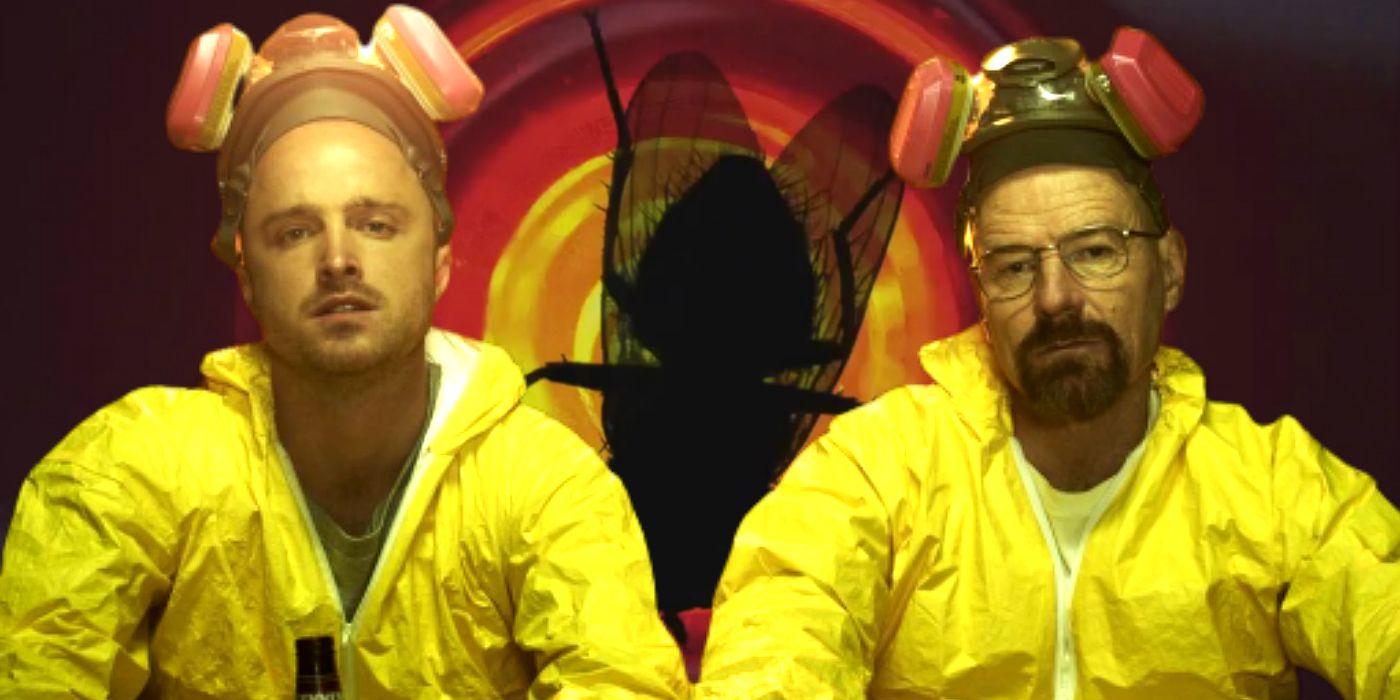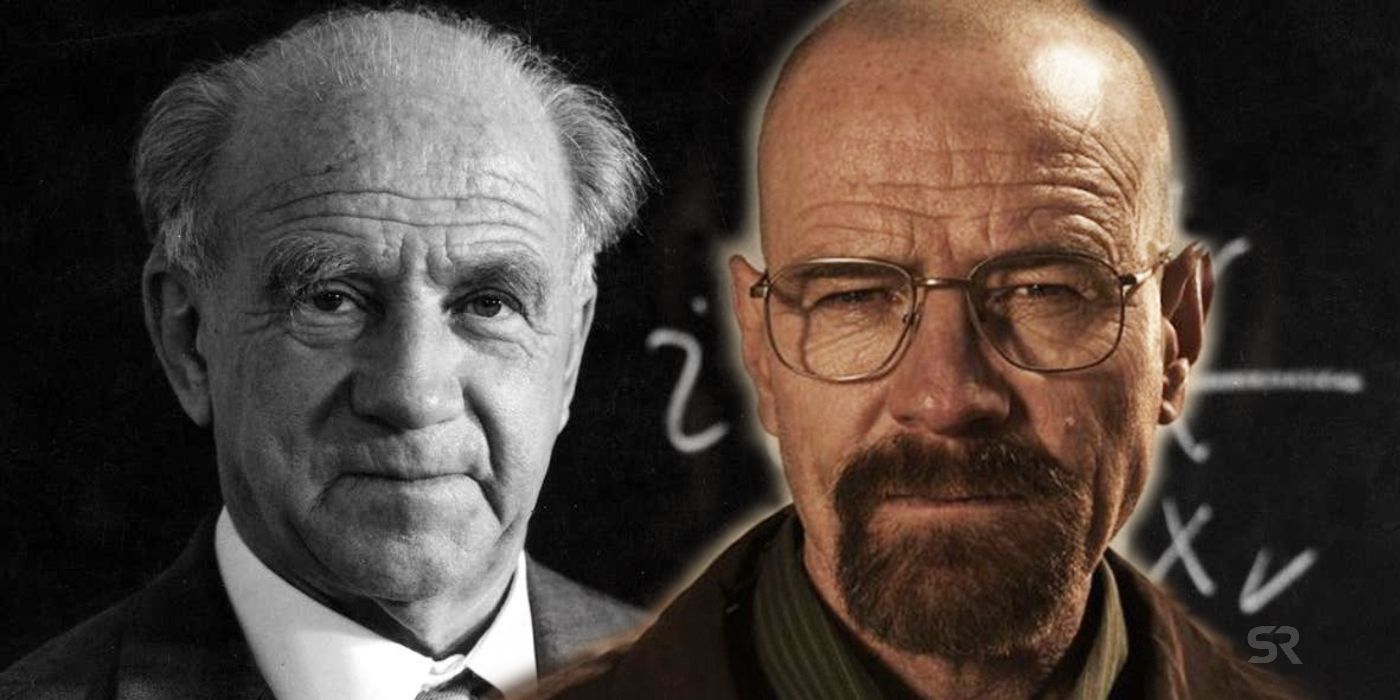Summary
- “Heisenberg” was Walter White’s alias in Breaking Bad and represented his transformation into a ruthless drug kingpin.
- The alias allowed Walt to gain notoriety while hiding his true identity, reflecting his concerns and personality.
- The name “Heisenberg” was inspired by the German physicist Werner Heisenberg, known for his uncertainty principle, which mirrored Walt’s unpredictable actions throughout the series.
The Walter White nickname of “Heisenberg” was memorably used throughout Breaking Bad and the name had a deep significance. Bryan Cranston portrayed the character for five seasons of the AMC series and one of the most compelling arcs of the award-winning show focused on Walt’s transformation into the ruthless drug kingpin named after the historical figure, Werner Heisenberg. Breaking Bad‘s Walter White picked “Heisenberg” as his alias for some good reasons, it turns out. The Walter White alias Heisenberg serves as a mirror for who Walt really is.
Before Walt entered the meth-cooking business, he was a high school chemistry teacher down on his luck, which helps to explain Heisenberg’s Breaking Bad significance. Walter White turned to cooking meth after being diagnosed with cancer, hoping to make enough money to leave his family with something. When he partnered with former student Jesse Pinkman, the duo got their operation off of the ground, and Walt had to hide his identity. The Heisenberg name allowed Walt to gain notoriety while keeping his true identity hidden. However, Heisenberg carries a hidden meeting that relates to Walt’s personality and concerns.
Every Person Walter White Killed On Breaking Bad
Through five seasons of Breaking Bad, Walter White was responsible for the deaths of hundreds, and that’s not even counting anyone killed by his meth.
Why Walter White Called Himself Heisenberg
Walt Was Inspired By A 20th Century German Physicist
The Walter White nickname came from Werner Heisenberg, a German physicist known as a pioneer of quantum mechanics. As a chemist, Walt would be familiar with famous scientists; likely, he took Heisenberg as an inspiration. However, the name Heisenberg and the altered appearance also allowed him to separate himself from his actions and suppress guilt. This has led to theories that Walt was the embodiment of Heisenberg’s famous uncertainty principle and that this is the true reason for the Walt and Heisenberg Breaking Bad connection.
How Walt Connected To Heisenberg’s Uncertainty Principle
Walter White’s Arc Mirrors The Real Heisenberg’s Most Important Theories
German physicist Werner Heisenberg’s uncertainty principle states in its most simple form that the position and momentum of an object cannot be measured simultaneously. In other words, if one property is known, other important properties will remain uncertain. A similar type of uncertainty surrounded Walt throughout Breaking Bad.
When Walt found momentum as a drug lord, his role as a husband and father was left uncertain or vice versa. Without being able to measure his mindset, it became more difficult to predict his actions. Heisenberg’s principle also claims that observation could influence the subject, preventing a full analysis. This would connect to those who discovered Walt’s Breaking Bad secret and altered the outcome of his crimes.


Breaking Bad Cast & Character Guide
From Bryan Cranston to Aaron Paul to Giancarlo Esposito, the cast of Breaking Bad is full of great actors playing morally complicated characters.
Who Is Heisenberg? Why Walter White’s Alias Is So On Point
The Real Werner Heisenberg Was Revolutionary Scientist
Werner Heisenberg himself is also an apt historical figure to represent Walter White’s Breaking Bad arc. Credited with the creation of quantum mechanics as a discipline, for which he won the Nobel Prize in Physics in 1932, Heisenberg was at the forefront of atomic energy development in the mid-20th century. He wasn’t directly involved in the creation of the first atomic bomb, as this was an American endeavor and Heisenberg was in his native Germany during World War II, but Heisenberg did have an intimate understanding of atomic energy and was instrumental in developing the first German nuclear power plants.
In short, Heisenberg can be thought of as synonymous with atomic energy itself — utterly powerful and able to build or destroy civilizations. Breaking Bad‘s Walter White/Heisenberg occupies a similar role within the series and serves as another great example of how genius can be used or misused in different circumstances and to very different ends.
How Walter White and Heisenberg Are Different
The Inspiration Is Thematic
Despite Walt’s choice of the Heisenberg nickname, there are a lot of differences between him and the famous scientist. A large part of Walter White’s frustration with his life was due to his relatively lowly status as a high-school teacher. While his friend and former business partner Elliott became a tech billionaire, Walt found himself constrained by his decision to choose a safe job and family.
On the other hand, Heisenberg was recognized as a genius scientist at an early age, winning the Nobel Prize in Physics at 31 and only marrying later. Walter White’s Heisenberg persona may reflect his feelings that Heisenberg lived the life of a successful scientist that Walt missed out on.
The Breaking Bad universe is full of characters who succumb to their immoral desires. Heisenberg’s morals were frequently in question considering his work for Germans and his link to Nazi research. Though the Nobel Prize-winning physicist achieved an insurmountable level of success in his career, a dark cloud hangs over his legacy.
The same could be said for Walt’s legacy as Heisenberg represents his dark side. Any time he put on that porkpie hat and dark sunglasses, he became an entirely different person with no morals. By the end of Breaking Bad, he lost sight of his old self and realized that being Heisenberg was more fulfilling. Despite the scientific aspirations represented by Walter White’s Heisenberg identity, in the end, he was just a criminal.


Breaking Bad’s Fly Explained: What The Divisive Episode Means
Breaking Bad’s divisive season 3 episode, “Fly”, has deep meaning but exists thanks to budget issues. Here’s the Breaking Bad Fly episode explained.
Alter Egos Are Important In The Breaking Bad Universe
Walter White Isn’t The Only Character To Adopt A False Name
As unique as the journey of “Heisenberg” is in Breaking Bad, the Walter White alias draws a connection to another key character within the Breaking Bad universe. Saul Goodman is introduced as the sleazy criminal lawyer in Breaking Bad, but the spinoff Better Call Saul reveals the Saul Goodman name is just one of Jimmy McGill’s many personas.
Within the shared universe of these two shows, Walt and Jimmy share another unseen connection, as their alter egos are incredibly important to their journeys as characters. They both use their aliases to gain more power and let their legends grow, and just as Walt embraces the ego and ruthlessness behind his Heisenberg identity, Saul Goodman is the worst qualities of Jimmy McGill heightened to a powerful level.
What is interesting is how both these characters see their arcs conclude with their alteregos playing important roles, but directly opposite each other. With everything else gone, Walt decides to die as Heisenberg, embracing that side of him to the end in Breaking Bad. On the other hand, in Better Call Saul, though Saul Goodman gets himself out of prison, he decides to be Jimmy McGill and accepts his punishment.


Breaking Bad
Breaking Bad, created by Vince Gilligan, follows a chemistry teacher turned drug kingpin named Walter White (Bryan Cranston) as he attempts to provide for his family following a fatal diagnosis. With nothing left to fear, White ascends to power in the world of drugs and crime, transforming the simple family man into someone known only as Heisenberg.
- Release Date
- January 20, 2008
- Cast
- Dean Norris , Bob Odenkirk , Aaron Paul , RJ Mitte , Anna Gunn , Giancarlo Esposito , Betsy Brandt , Bryan Cranston , Jonathan Banks
- Seasons
- 5
- Writers
- Peter Gould , Gennifer Hutchison , Vince Gilligan , George Mastras , Moira Walley-Beckett , Sam Catlin , Thomas Schnauz
- Showrunner
- Vince Gilligan
This story originally appeared on Screenrant





